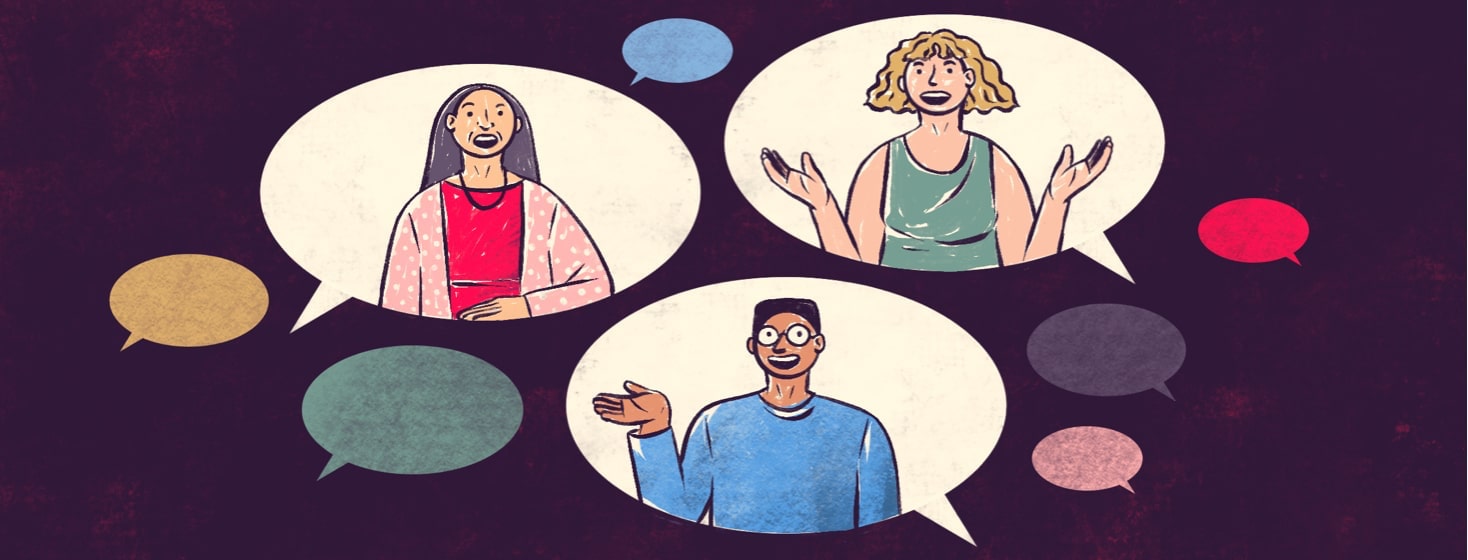SLEEP 2022 – A Patient Perspective
I recently had the chance to attend a huge sleep conference run by the Sleep Research Society and the American Academy of Sleep Medicine. It was filled with excellent research talks. Hearing about all the new developments to help improve the lives of people living with sleep apnea was truly remarkable. After attending SLEEP 2022, I have gained a patient perspective on sleep apnea through my conference participation.
Patient perspective at conferences
Attending a sleep conference as a patient advocate can be a strange experience. Hundreds of sessions are filled with doctors, researchers, and vendors all talking about your particular health condition. A lot of the lectures are about new research trying to understand sleep apnea better.
This or That
Have you ever attended a conference about sleep apnea?
The patient voice
It was not so long ago that patients attending this particular conference had to check an "other" box because there was no particular way for a patient to register to attend. Things have improved a lot.
Rates for patient advocates
Now, patient advocates have a special reduced rate and are encouraged to attend. I'd love to see more financial support offered to patients attending conferences like this one so we can hear a full spectrum of patient perspectives– not just those of us who can afford to attend.
Perspectives from patients to professionals
This year, there were panels and presentations from patients living with narcolepsy. I hope we'll see sleep apnea represented in this way at future conferences. Incorporating patients' lived experiences and stories is such a great way to build a more well-rounded and interesting conference.
Perspectives from doctors treating patients, researchers answering questions about the condition, vendors providing treatment options, and patients sharing valuable insights are all vital.
Conference takeaways
Sleep apnea experiences vary
The big takeaway from the research presented was that we are learning just how unique patient experiences of sleep apnea are. I heard time and again about women experiencing quite different symptoms than men.
Apneas and hypopneas
The limitations of the apnea-hypopnea index were discussed. It is one element to describe sleep apnea but a whole host of other factors, such as arousal threshold, are important in understanding the patient's reaction to those apneas and hypopneas.
Treatment isn't "one size fits all"
When it comes to treatment options, patient choices are so very important. Two people could have the same severity of sleep apnea and one might do very well with CPAP and be happy to continue that treatment indefinitely. Another patient might struggle to stay consistent with CPAP (continuous positive airway pressure) machines and look into an oral appliance with a qualified dentist or another treatment option.
Just because 2 people look the same on paper, does not mean they will do well with exactly the same treatment.
Unsolicited advice
Over the 3 days I attended the conference, I started to notice a pattern. People with the best of intentions kept offering me unsolicited advice about my own treatment options. I have been a CPAP user for 14 years.
Sleep apnea treatment options include CPAP but also surgeries, lifestyle changes, oral appliance therapy and all sorts of newer devices. A few things I heard from people at this conference included:
- "You should try (xyz) treatment instead of CPAP."
- "Why aren't you doing double jaw surgery?"
- "My husband did this treatment, you should switch to that."
- "If you're still sleepy, you must have (xyz) sleep disorder."
It did not feel good to be on the receiving end of other people's opinions about my treatment options, especially when they didn't know me or my journey.
Needed: more patient voices!
Have you ever attended a conference about sleep apnea? What would you want to share with researchers and clinicians? Are there particular topics you think should be discussed at conferences about sleep apnea?
Post your comment below.

Join the conversation